
Jawbreaker's Blake Schwarzenbach on 12 albums that impacted his life
Pick up Jawbreaker vinyl in our store.
UPDATE: Blake added two more albums to his list, bringing the total to twelve. See the two new additions, with commentary, below.
There’s always some new thing going around Facebook that suggests you list a bunch of albums you love, and the latest is you get nominated by someone to post ten album covers — one a day — that made a major impact on you, no explanation necessary. Jawbreaker frontman Blake Schwarzenbach decided to do it, and wrote “No one nominated me, so in true social media fashion I will just invite my opinions into your world.” He also decided to post commentary on each pick, which is great news, since he has so many interesting stories to tell. He posted them between June 16 and July 6 on his Facebook, and you can see/read about all ten of Blake’s picks (with pictures that appear to be taken of his own vinyl collection) here.
Jawbeaker have some upcoming tour dates, including shows in Portland (tickets), Brooklyn (tickets), Asbury Park, NJ (tickets), San Francisco and Chicago. See all their upcoming dates here.
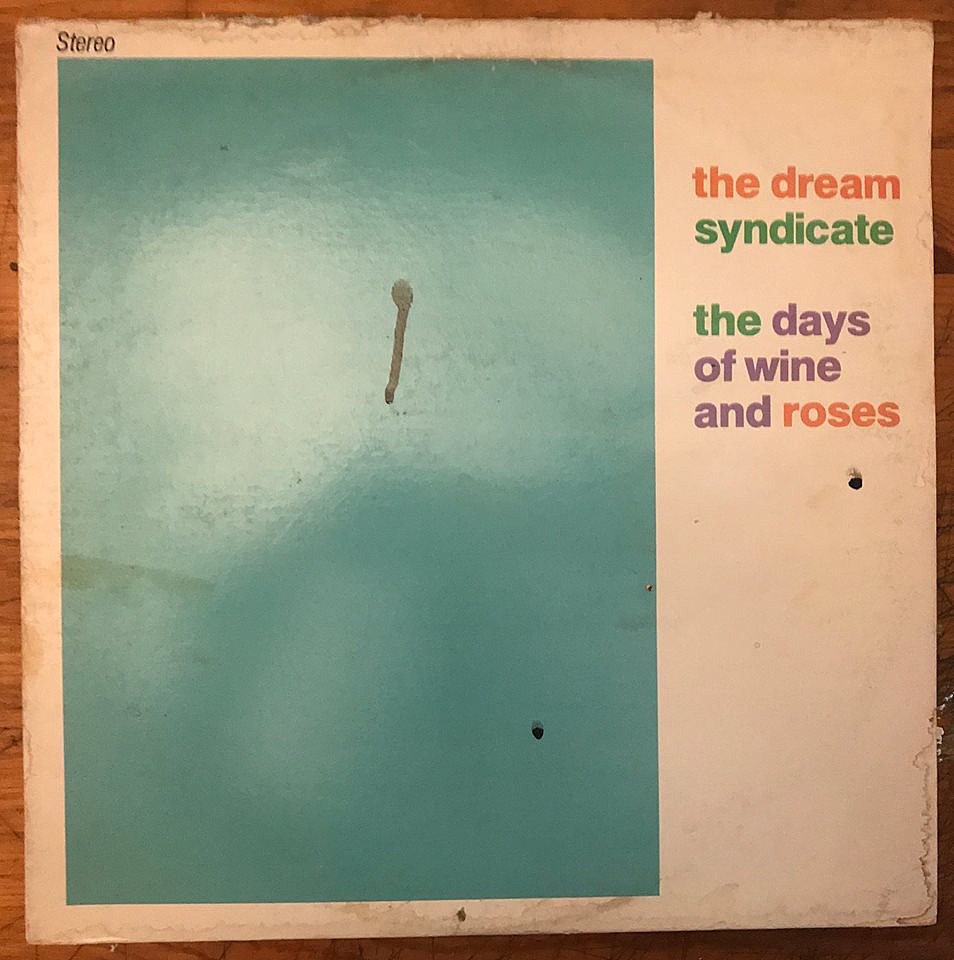
The Dream Syndicate – The Days of Wine and Roses
One of my most played high school albums — I saw them open for the Psychedelic Furs at the Santa Monica Civic and they left their guitars feeding back for about 20 minutes after finishing. I bought the record that week and haven’t taken it off the player since.
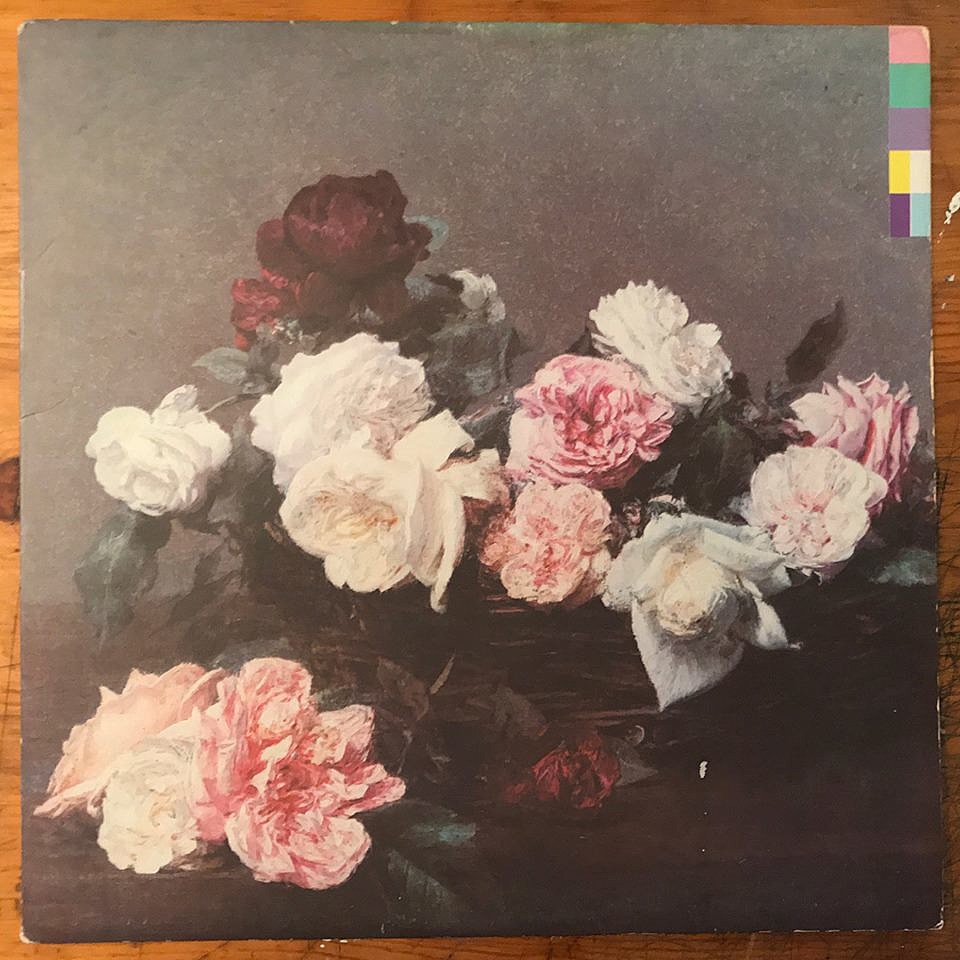
New Order – Power, Corruption & Lies
If ever a record sounded like its cover, this is it. Specifically “Your Silent Face,” which has all the terrible empathy and post-traumatic reckoning that made New Order a crucial study in trauma and reconciliation.
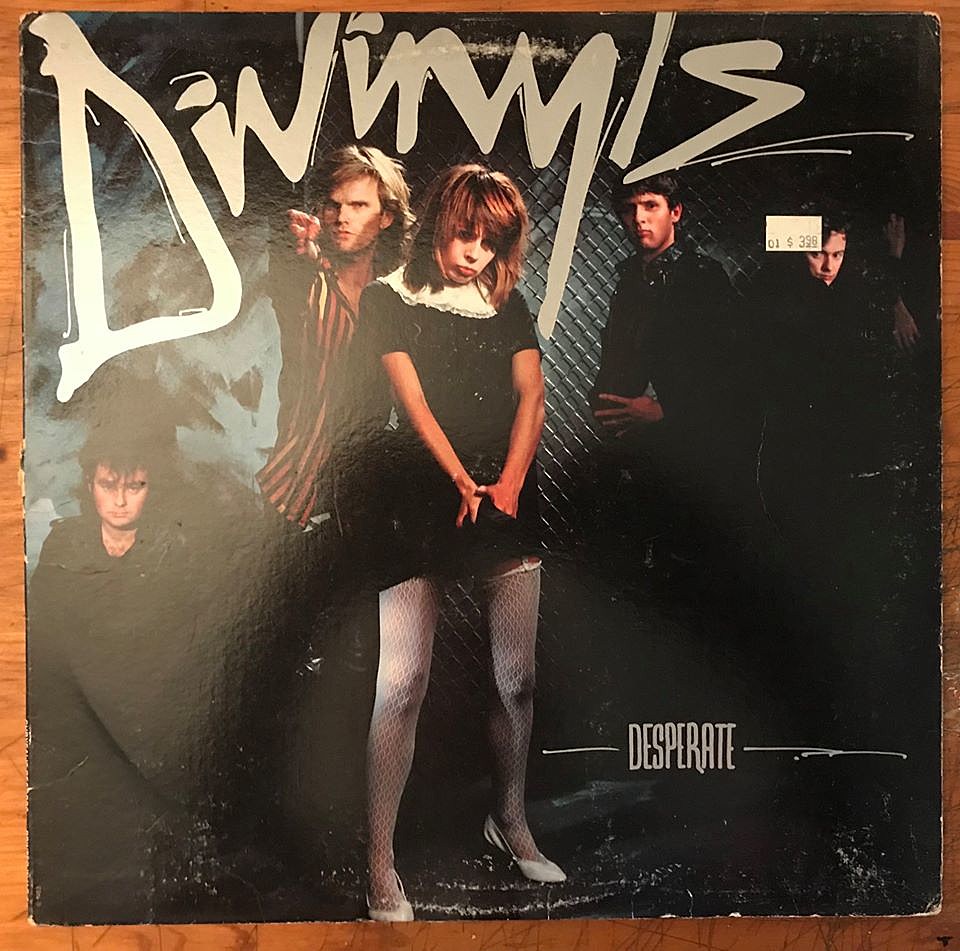
Divinyls – Desperate
I first heard “Boys in Town” on the radio in 10th grade — it had some of the dark, intense woman energy of The Pretenders which I immediately recognized and gravitated towards: the voice of the scorned slut haunting her tormentors from a place past care and possibly even ruin. What I didn’t then know was that it was to be the album’s fifth cut, “Elsie,” which would go on to be my favorite. Christina Amphlett’s guttural meltdown towards the end of the song veers into proleptic grind-core territory while never once giving up its underlying sadness and, yes, desperation.

Meat Puppets – Meat Puppets II
This album rarely left my turntable in high school. It sated my tireless Zeppelin needs while also bringing the psychedelic grandeur of a tune like “Plateau” and taking the listener on a psychic journey deep into the lost valleys of the desert and the even deeper crenellations of the mind.

The Three O’Clock – Baroque Hoedown
It could be argued that a whole second psychedelic style emerged from the L.A. underground — some felt it was merely pastiche, whereas I took it to be more of a great thing, and a fairly sensible response to the horror of the 80s, running, as it did, alongside the steadily growing punk and hardcore movements. This mini-album is pure saccharine bliss — a bit Strawberry Alarm Clock with plenty of “Revolver”-calibre rocking out. Way underrated in my book.

Psychedelic Furs – Talk Talk Talk
Perhaps the only time in the 80s that saxophone was actually cool in underground music (with the exception of Fear’s “New York’s Alright…) But beyond that merely whimsical observation, this was the band’s true mission statement and formal coming out as a densely knotted, highly sophisticated, entirely quirky unit. The great trick of the Psych Furs has always been their — I want to say almost Korean — ability to wed total detachment to total sadness and melancholy. In other words, a kind of readymade meditation on the state and fallout of punk’s alienation. There is a sonic consistency to this album — both in song structure and also in its close, roomy production — that feels like a band at the forward edge of its powers, giving you the business. If “She Is Mine” doesn’t melt your heart then we are in bigger trouble than we thought.

Alien soundtrack
There is a tragic nobility to the major thematic motifs in this score — it could be the music of Hamlet or Lear. But then there are the sinister and alien irruptions of low, martial percussion and breathy, subatomic strings or oboes, declaring something truly other and chaotic is running amuck. This album is also a great lesson in classical listening for the beginner (like me!) — the major themes are mostly laid out up front and then recur at different intervals and in gradual permutation until they achieve a kind of grand synthesis towards the end. (I first learned of this scheme from a friend who sat me in front of a Richard Strauss piece and cocked his head each time a new theme was introduced and then reminded me when it was later repeated and incorporated — very instructive.) Anyway, if that doesn’t sell you, then know this: track 2 is called “Face Hugger.”

Merle Haggard & Willie Nelson – Seashores of Old Mexico
I could easily do ten each on just Merle Haggard or Willie Nelson, but this album was a beautiful gateway for me to the genius of both men as singers, guitarists and all-around unimpeachable characters. Firstly, the basic conceit of the album: two outlaws running away to Mexico to start new lives (obviously a sunny inversion of the hateful Trump doctrine, but also a time-honored theme of noir fiction and cinema; and this is definitely an aging gangster kind of album, full of the winsome and tender dreams of a couple of romantic fugitives.) “When Times Were Good” is my favorite song, and a great study on the way these two heroes approach a vocal and a guitar interlude — each does the same chorus in their own inimitable way; I’d say that Merle’s tavern-worn way of confessing to that “same old weakness for the wine” is one of the saddest and sexiest line deliveries out there. So much of the album is about looking back, wondering if one could only survive the memories they carry with them, and of course a kind of fond valedictory speech to their old ladies (arguably, in this case, the same unforgiving lady known as America, or at least the laws of the straight arrows). In any case, I have no doubt that Merle is sitting in some small cafe in Ixtapa right now, keeping the beer cold for when his friend arrives.
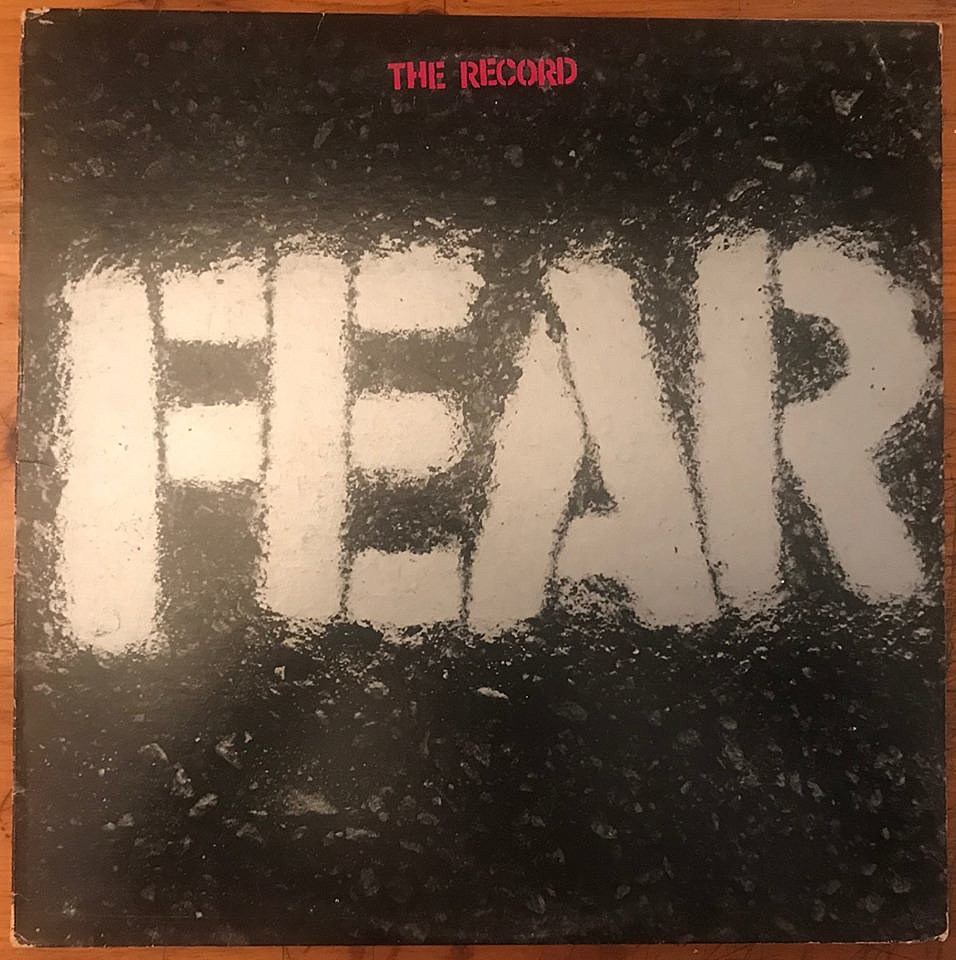
Fear – The Record
The perfect punk rock album: misogyny, homophobia, misanthropy, criminal mischief, class avarice, post-humanist disgust. Satire. Not trolling. I saw Fear a lot in high school and it was never anything less than hilarious mayhem with crowd-baiting, spitting, and furious slam dancing. (I also drank beer with Derf several times, as he used to party with my neighbor and girl friend’s mom.) What I especially love about Fear and the Lee Ving persona is their collective urban contempt for the suburbs. “The suburban scumbag” is a thing really worth pondering — far more prescient than the loutish whinge against “snowflakes.” (Although, to that point, snowflakes ARE real, and annoying as fuck: an WNYC tote and a CSA membership doesn’t a resistance make, cuck-face.) “We Destroy The Family” — this is a WE I want to be a part of! Just buy it, you piece of shit.
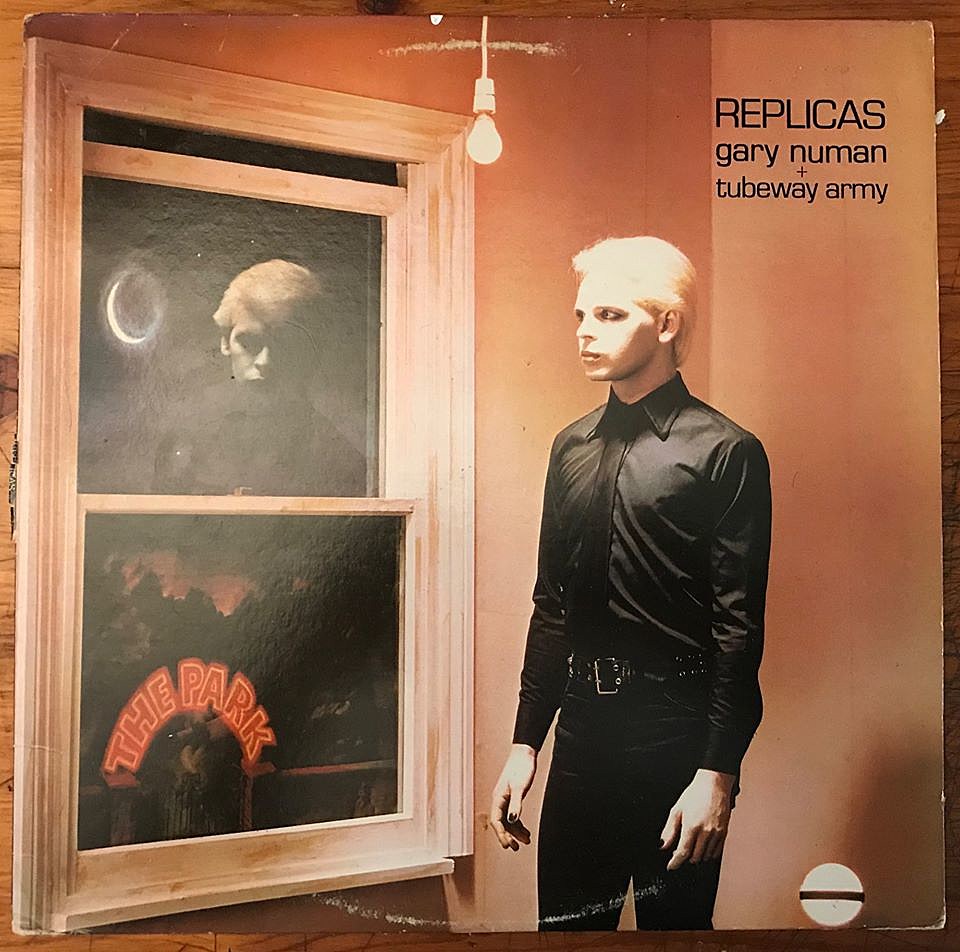
Gary Numan/Tubeway Army – Replicas
“I was in a car crash or was it the war?” My first encounter with Gary Numan was in 9th grade when I somehow happened upon “Urgh! A Music War” (most likely at the Fox Theater in Venice, Ca). Those of you that have seen the film know that he pretty much steals the show with his outrageously staged version of “Down in the Park.” I was so fascinated by this anemic-looking, petite Nosferatu, encased in his coffin-like car, traversing the stage in an electric trance. Something about that prophetic and detached persona really wormed its way into my nervous system and assumed control of my CPU. The songs are simple, repetitive, groove-based, and heavy in a way that synths often aren’t. It has been wisely stated elsewhere that he was the first person to use the synthesizer like an electric guitar (with distortion, basically playing power chords with widened out, fuzzy notes). This is true. Let the estranged pilot take you on a trip of eternal return.
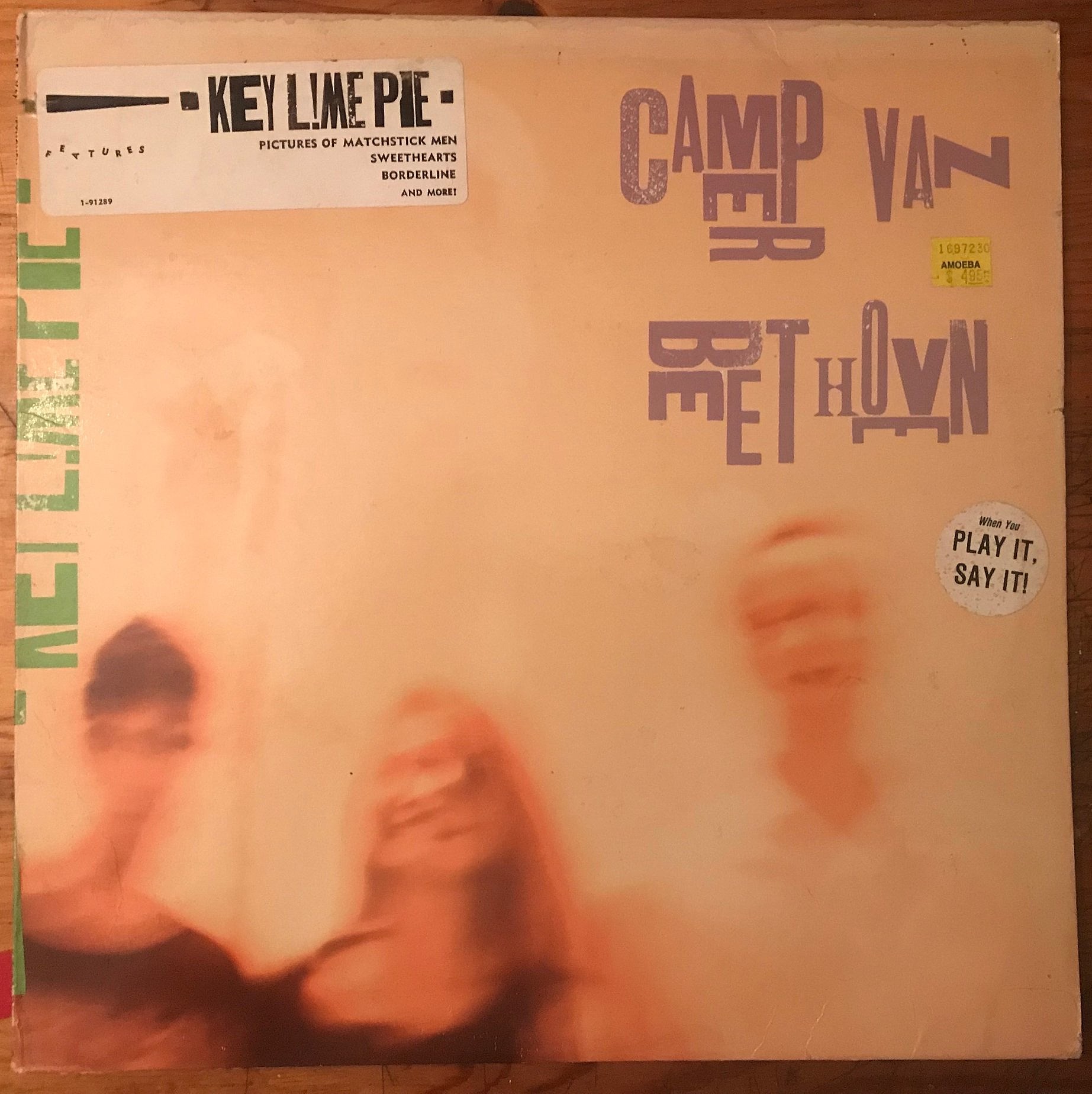
Camper Van Beethoven – Key Lime Pie
“‘McDonnell-Douglas Olive Drab.’ Before there was Pavement, who could articulate that cheeky, disenchanted boarding school acid so well; just slightly after John Updike posted his wry observations on suicidal WASPiness and sexual animus; alongside the slow, rolling dive of rock criticism into prickish crony gatekeeping, there was a freckled bunch of avant-garde hillbillies from the Psilocybin-laced trails of Santa Cruz called Camper Van Beethoven. The name tells you what you need to know: high/low, erudite/trash, Vienna/Vienna Sausages, herr Maestro/Hamburglar — I could go on, but my point is just this — the imagination runs wild in this band, racing down the perverse gallery of the twentieth century. There are flourishes of Bakersfield, waltzes, borders, the eradication or fusion of borders, and David Lowry’s wounded resolve to see this mother through. There are few songs with more grit than “(I was Born in a) Laundromat.” Listen to it now. With headphones. The way the second clean guitar comes in on the left channel in the second half of the verses is so totally Cars, so simultaneously vicious and euphoric, that you will stop what you’re doing and think again about how much you resent the wealthy and the famous. ‘Cuz in the mind of Ronald Reagan / Wheels they turn, gears they grind.'”
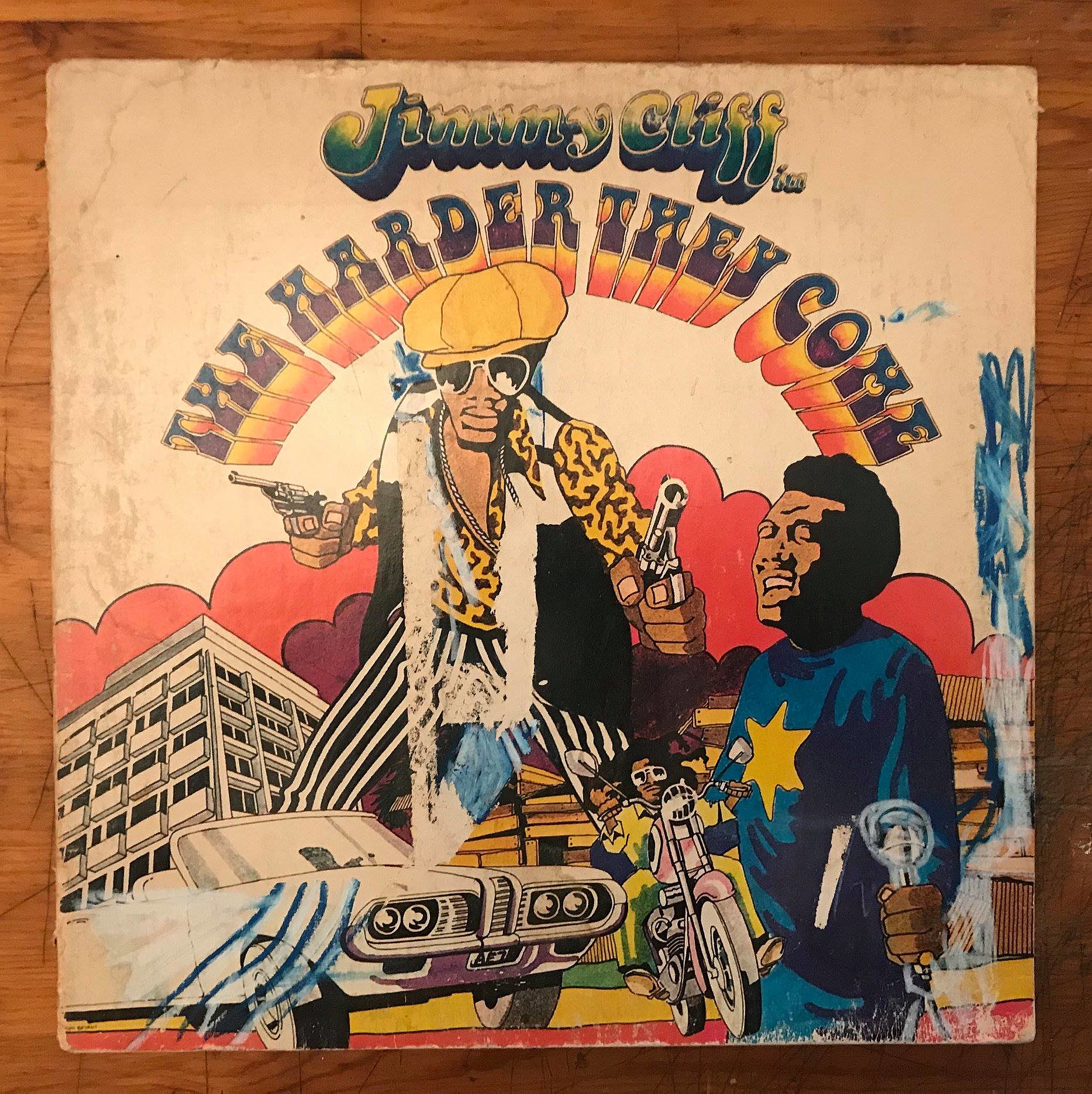
Jimmy Cliff – The Harder They Come
“‘Sitting here in limbo / Waiting for the dice to roll.’
When my family brought me home from the hospital after my first suicide attempt, we set about trying to straighten up my apartment, a small studio in Brooklyn that had been both neglected and prepared for it’s occupant’s abrupt departure. My sister, adept at non-sentimental purging, led the charge by beginning to assemble a pile of “questionables” (things that I might or might not want to keep, with the always implicit statement that I didn’t). My mom did the dishes and carefully assessed the food stores. My stepfather began the thorny task of sifting through my hopeless finances and composing an appeal for forgiveness of debt from New York Presbyterian, who had overseen my care for the past two weeks at a psychiatric institution in White Plains, NY. The bill, as you might imagine, was staggering. But forget that — you forget that, don’t you? This is a time of triage, you are really just concentrating on keeping your eyes open and trying to make a show of getting out of bed in the morning, even if only to brush your teeth and look at the classifieds for possible employment. You don’t think about how to explain a three-month absence of employment or a sudden departure from your last place of work — you just try to fill in as many boxes as you can and call it something. You begin with this basic premise: anything is better than nothing. But back to the apartment. My mother on nutrition, my sister on aesthetic sanity, my stepfather on material sustainability. A family at work, encircled about one of their own, preparing a nest for recuperation — the animal analogies swirl about my head now, of determined beavers and vigilant dogs and swift and worrisome moles and, finally, of ducks arrayed in the water like an armada with the most vulnerable members at the center of its fleet. These were the thoughts — the analogies, the slurring metaphors — that I held in abeyance as I stood in the center of my apartment, watching my family shore up the life I had tried to throw away, knowing that if I let even one of these tender animal scenarios fully into my emotional core I would simply dissolve into a pile of cut nerve endings and sizzling neurochemical fission. It occurred to me then that everyone was doing what they were best at and I was a person who had forgotten who he was, what he was best at or even any good at. But I was a musician and hoped to be one again and I trusted in the basic premise that music — its appreciation and its invention — is one of the very few things humans have every right to be proud of and even wonder at as they stumble their way through this beautiful and harrowing existence. I’d like to think that these were the thoughts that moved me to put on my timeworn copy of Jimmy Cliff’s ‘The Harder They Come’ album, but, like music, it was more of an impulse towards living than any tangible thought. I knew only that I wanted to be in the wash of an album I have loved since childhood, as I entered yet another childhood of my own, and I dropped the needle on the warm opening of ‘You Can Get It If You Really Want.'”
—
Jawbreaker are currently reunited and touring this year, including shows in Coney Island and Asbury Park this September (tickets).







